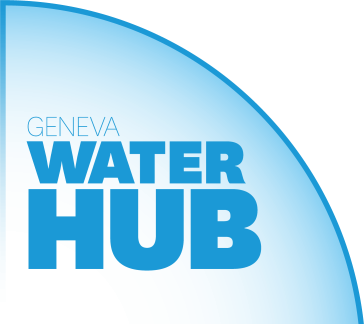
9th World Water Forum - Geneva Water Hub activities' overview
High Level Panels
Exchange between transboundary aquifers on three continents
Monday 21 March, 14.00-15.30, Room 10 Expo - OMVG, OMVS, UNECE and Geneva Water Hub
This High-Level Panel will establish a dynamic exchange of experiences among three transboundary aquifers on three continents. This High-Level Panel will address the major developments on governance over the past two years on the Senegal-Mauritanian Aquifer Basin in Africa, the 40 years of experience of the Geneva aquifer between France and Switzerland in Europe, and finally will address the developments of the Guarani aquifer in South America. Each aquifer is ruled by specific treaties. The event will bring together representatives of the three basins on these aquifers to exchange experiences, lessons learned, relevant committees and other institutional arrangements, data sharing, stakeholder participation and peacebuilding opportunities. It is expected that this session will mark the beginning of a longer-term collaboration between these three different treaties on transboundary aquifers. This High-Level Panel will have a particular focus on the Senegal-Mauritanian Aquifer Basin, which has had major developments over the past two years and has the particularity to join the governance of surface water with groundwater.
Protection of Water and Water infrastructure during Armed Conflict
Tuesday 22 March; 13.30-15.00, Room 11 Expo - Geneva Water Hub, with the support of Switzerland
This Panel is an important milestone for ensuring better protection of water and water infrastructure, before, during and after armed conflicts. With the support of the Swiss Confederation, the Geneva Water Hub invites you to contribute to the discussion. This High-Level Panel will create the dialogue required to ensure access to safe drinking water and sanitation services before, during, and after armed conflict. The discussion will further broaden the international legal framework protecting water and water infrastructure in times of armed conflicts including relevant principles of human rights law and international environmental law. It will provide a unique opportunity to explore cross-sectoral linkages between SDG 6, SDG 9, SDG 11 and 16, and the Agenda 2063.
Global Observatory on Water and Peace, and its regional partner the Pole Eau Dakar
Tuesday 22 March; 10:45-12:15, Room 202 CICAD – Geneva Water Hub, Pole Eau de Dakar
The High-Level Panel on the Global Observatory for Water and Peace (GOWP) will facilitate dialogue between politicians, diplomats, actors from the water as well as from the peace and security sector, will launch the first report of the Global Observatory for Water and Peace and will present the Pole Eau Dakar- the West-African regional partner to the GOWP. The GOWP and its annual analytic report is a direct implementation of the recommendations of the Global High-Level Panel on Water and Peace made in its report “A Matter of Survival”. The session intends to bring together for the first-time actors from the four High-Level panels on water to discuss how the report of the GOWP can further their respective action and strengthen synergies of vision. It intends to further stakeholders’ engagement by engaging as well at the regional level with the partners of the Pole Eau Dakar, which will follow up on the recommendations of the 9th World Water Forum.
Special Sessions
Restitution session "Voices from the river, the path to peace"
Wednesday 23 March, 13.30 – 15.00, Auditorium CICAD – OMVS, IPAR, SIE-SEE, Geneva Water Hub, and many others.
OMVS and its partners are presenting "Voice of the River, Path to Peace". Aiming to initiate a dialogue between the major development axes of the Senegal River basin, societal dynamics and local entrepreneurship related to water, this session will design innovative solutions by bringing together local populations and their youth, artists, personalities, experts and the basin organisation. It will reflect on consultations made with the local populations along the Senegal River Basin, the creation of local jobs and the role that OMVS can play in strengthening peace in the basin with the establishment of a Blue Fund to support local entrepreneurship and employment. The internationally renowned artist Baaba Maal, the project's sponsor, will be involved in facilitating dialogue with local populations. The project has several components, including the Open Sahel Festival; the production of an album with Baaba Maal, Daara J Family, Noumoucounda, Fatoumata Diawara, Noura Mint Seymali, and Sékou Kouyaté; community exchanges; the development of a blue fund concept; and a competition to mobilize and engage youth.
Ordinary Sessions
Preventing conflicts by facilitating dialogue and cooperation on transboundary water resources
Tuesday 22 March; 10.45-12.15, Room 7 Expo – coordinated by UNECE, Geneva Water Hub, Turkish Water Institute (SUEN)
The ordinary session focus on existing tools and means to ensure peace, catalyze sustainable development and prevent conflicts by facilitating dialogue and cooperation over transboundary water resources. Through the Blue Peace approach on water diplomacy, it brings together representatives of States, international organizations, and river basin organizations as well as civil society groups to share good practices on the management of transboundary water resources as an instrument of peace.
Promoting peace by developing and implementing legal frameworks for transboundary water resources
Tuesday 22 March, 13.30–15.00, Room 4 Expo – coordinated by UNECE, Geneva Water Hub, INBO
This session will provide an overview of how to advance transboundary water cooperation through the development of legal frameworks from the initiation to implementation stages. The session will discuss gaps and challenges based on the result of the reporting 6.5.2. It will provide a discussion on tools and instruments available to different water management actors. It will also provide a discussion of the examples of the application of international water law principles in practice at basin and regional level.
Side events on the Swiss Pavilion
Promoting local voices for water cooperation in the Sahel crisis
Monday 21 March; 17:00-18:30 - Geneva Water Hub,
Water is at the heart of socio-economic development and is an important driver for peace and security. In water-stressed regions, such as the Sahel, access to water is the key to enabling rural productive activities and defining possible land uses. In fragile contexts, access to water conditions territorial occupation and military movements by armed forces and non-state armed groups. Forced displacement places the burden of ensuring access to water for all on host communities. Local actors have a crucial role to play in defining solutions to the crisis. In many fragile areas, they have proven their ability to manage basic services in the absence of central state actors. Promoting a bottom-up approach is crucial to rebuild the relationship between social groups and between citizens and public institutions. Best practices such as those implemented by the Haute Autorité pour la Consolidation de la Paix in Niger could inspire other interventions to deliver development results when they add value to social cohesion in fragile areas.
Transboundary cooperation – How to share successful tools?
Tuesday 22 March; 10:30-11:30 - Geneva Water Hub, Canton of Geneva
The recent publication of “Tools for transboundary management of water and water uses in the greater Geneva”, published together by the Canton of Geneva and the Geneva Water Hub analyses a comprehensive catalogue of 39 transboundary management tools. On this occasion, a web interface is being developed and will be presented at the session on the Swiss Booth with the objective of launching an international dialogue on public policy instruments for transboundary water management.
Legal and institutional mechanisms to promote cooperation on dams in transboundary watercourses: the Euphrates and Tigris case
Wednesday 23 March; 13:30-14:30
Large dam construction is experiencing a renaissance worldwide. Damming a river is an opportunity for energy production and agriculture development. It can however create conflicts between sectors across multiple scales. Focusing on these challenges and on existing dynamics at play, the Geneva Water Hub and IUCN’s Environmental Law Centre launched the initiative “Dams: water flows regulation in a fragmented world”.
Its first endeavour is to elaborate an assessment of the legal tools applicable to dams planning, developing and monitoring. This assessment includes a compendium of references grouping and analyzing the main frameworks and principles to be considered when addressing the challenges of dams in general and large dams in particular.
In the context of this Geneva Water Hub and IUCN initiative, this session aims to discuss the challenges and opportunities for cooperation in the Euphrates and Tigris basin. After presenting the lessons learnt from the joint regime on dams in the Senegal river and the Practical Guide for the Development of Agreements or Other Arrangements for Transboundary Water Cooperation, the speakers will exchange on the need to establish a legal framework on the Euphrates and Tigris basin based on the principles of international water law.
Side events on the Transboundary Cooperation Pavilion
Transboundary cooperation supporting knowledge: how information systems and cooperation are important for the valorization of water data
Wednesday 23 March; 16:00-17:30, Transboundary Cooperation Pavilion – Geneva Water Hub, OIeau, INBO, UNECE
Water resources are under increasing pressure from global factors such as population growth, economic development and global factors such as population growth, economic development and climate change. Good knowledge and easy access to data and information on the state and evolution of water resources and uses is one of the keys to a successful water policy. Thus, water resource managers need reliable, regularly updated and relevant information to make the right decisions, monitor the impact of implemented measures and communicate with the public.
Youth Space
Stories on water infrastructures and pathways for solutions
Wednesday 23 March; 11:00-12:00, Geneva Water Hub, International Secretariat for Water (ISE) and World Youth Parliament for Water (WYPW)
This panel is part of a series of intergenerational dialogues organized for 3 years by the Geneva Water Hub, the International Secretariat for Water and the World Youth Parliament for Water to foster youth engagement on the thematic of water and peace. Approximately two billion people live in areas affected by armed conflict, where the destruction of water infrastructure is increasingly common. As noted by the ICRC and UNICEF reports, the consequences for the most vulnerable communities are severe. When water and sanitation services are disrupted, water-borne diseases and epidemics proliferate. To address this emergency, the Geneva Water Hub will host a high-level panel on March 22 entitled “Protection of Water and Water Infrastructure before, during and after Armed Conflict. It is in the wake of this event that the co-organizers would like to conduct a session exploring the impact on youth, but also the role that youth can play in protecting infrastructure and promote peace. The session will feature three dialogues between experts and youth leaders from fragile areas, conflict and violence contexts.
French Space
Assurer les services d’eau et d’assainissement en zones de conflits, l’importance de la protection des infrastructures
Tuesday 22 March; 10:00-11:00 (GMT, Dakar time) / 11:00-12:00 CET; Geneva Water Hub, Partenariat Français pour l'Eau, CICR, ES2
Cette session permettra une discussion active afin d’alerter sur l'importance de la protection des infrastructures d'approvisionnement en eau potable en zones de conflits et les mesures existantes. Les panelistes discuteront du cadre légal relatif à la protection des infrastructures hydrauliques, des rôle et responsabilités des parties prenantes aux conflits, avec des illustrations sous forme de retours d’expérience.

